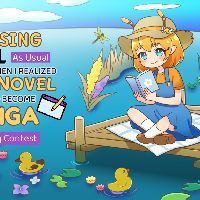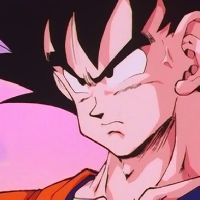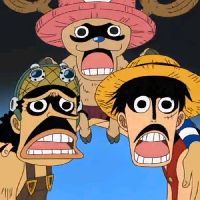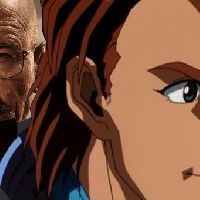This article was written by Riles and edited by Parkyou and nirosa of the MAL Articles Club.
Interested in writing or editing for us? Click here!
Localization of anime has been a hotly-contested debate for fans since simulcast streaming became industry-standard. True anime purists believe that Japanese-language anime (typically referred to as subs) is the best way to experience the medium, while the other end insists that anime in any other language (known better as dubs) can be an acceptable, sometimes even preferable alternative.
This article is not that discussion. Instead, the aim of this writing is to find out how anime can change when it’s localized from one language to another. This sort of investigative analysis aims to show that changes can be different, rather than better or worse. For this article, we'll take a look at part 1 of Little Witch Academia, which has been released in five different languages via Netflix. I've chosen the English language to compare and contrast with Japanese because English is my native language. Please join me while I take a look at characters, script changes, and other various differences between the Japanese and English versions of Little Witch Academia.
Cast & Characters
Akko
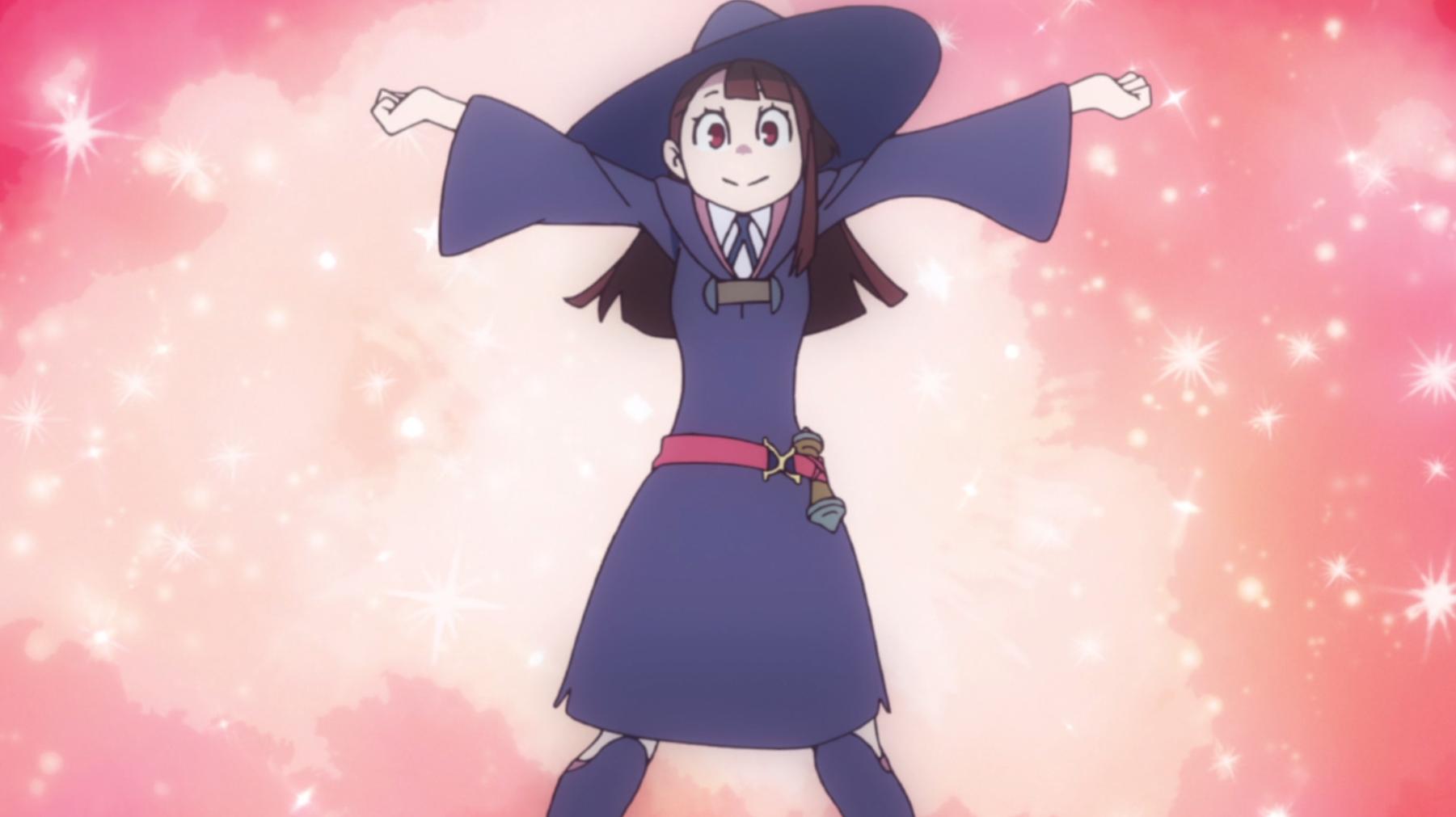
Japanese Akko was voiced by Megumi Han, best known for her leading roles as Gon Freecss from Hunter x Hunter (2011) and Rinko Yamato from Ore Monogatari!!. She's a talented actress who has played many leading roles, most of which are energetic and a little eccentric. Akko is one of her most eccentric roles to date, as a character who isn't the smartest but does make up for her lack of magic with effort.
In English, Akko is played by Erica Mendez, who is also a veteran actress in anime. Her roles include fellow Trigger heroine Ryuko Matoi from Kill la Kill, but what's most interesting is that Mendez also played Gon from Hunter x Hunter (2011). Two voice actresses performing the same character from two separate shows is a good indication of how much work was put into casting for Little Witch Academia. English Akko is a little more tomboyish than eccentric and a little less detailed when talking about specific things, but otherwise maintains the straightforwardness of her Japanese counterpart.
Lotte
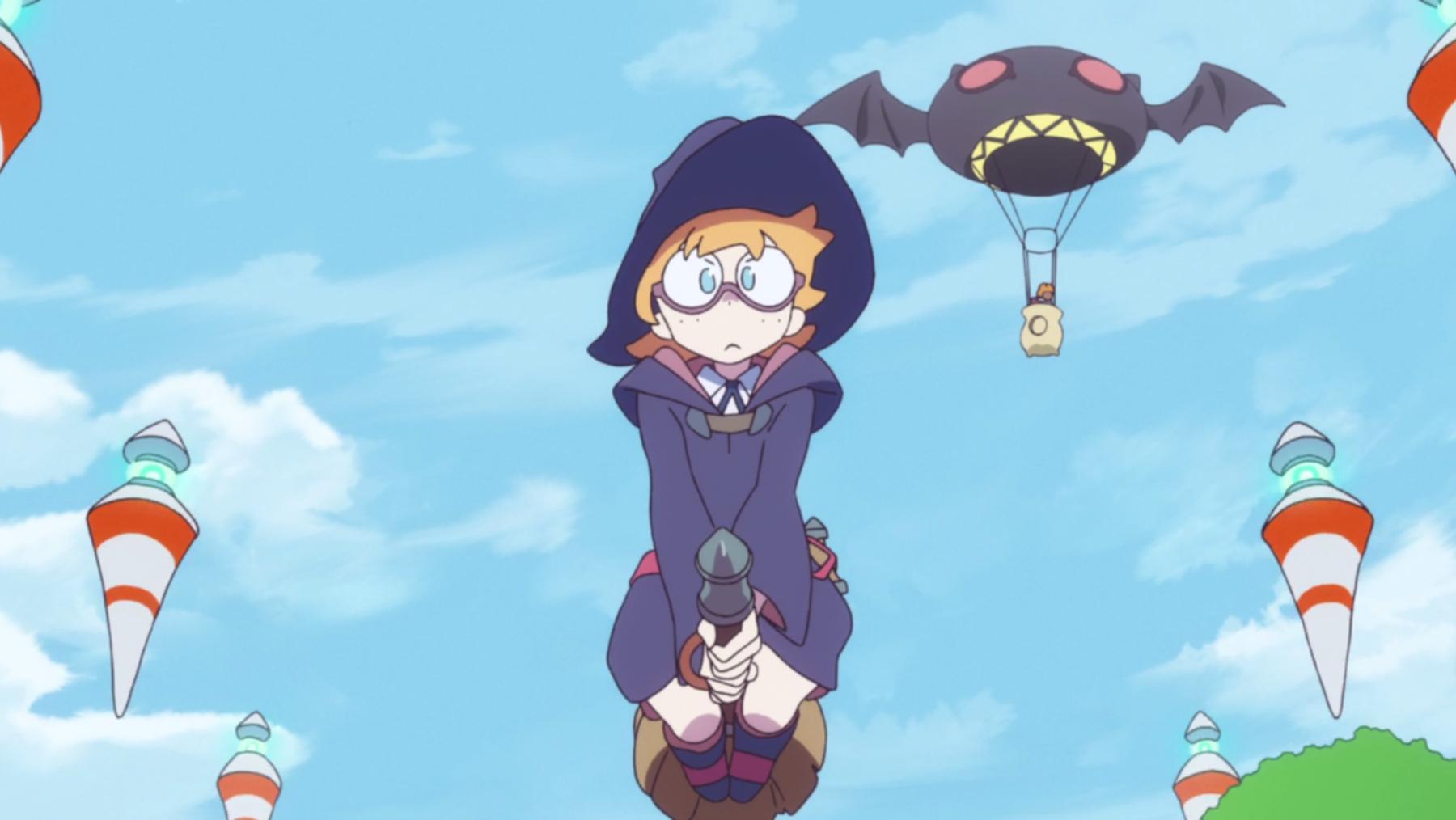
Japanese Lotte is voiced by Fumiko Orikasa, best known for her performance as Rukia from Bleach. She's also voiced Kyubei Yagyu from Gintama and a few other women known for their talent and strength. It's ironic, then, that she was cast for Lotte, given her unassuming demeanor.
In English, Lotte is played by Stephanie Sheh, best known for her work as Hinata from Naruto. She's also played Orihime from Bleach and Usagi from the most recent Viz dub of Bishoujo Senshi Sailor Moon. Her casting has also involved a lot of women with strength, which makes Lotte's casting surprisingly different.
Strictly speaking, there isn't much difference between the two performances. Both play the kind yet somewhat invisible Lotte with similar speaking habits and volume, and neither one outshines the other.
Sucy
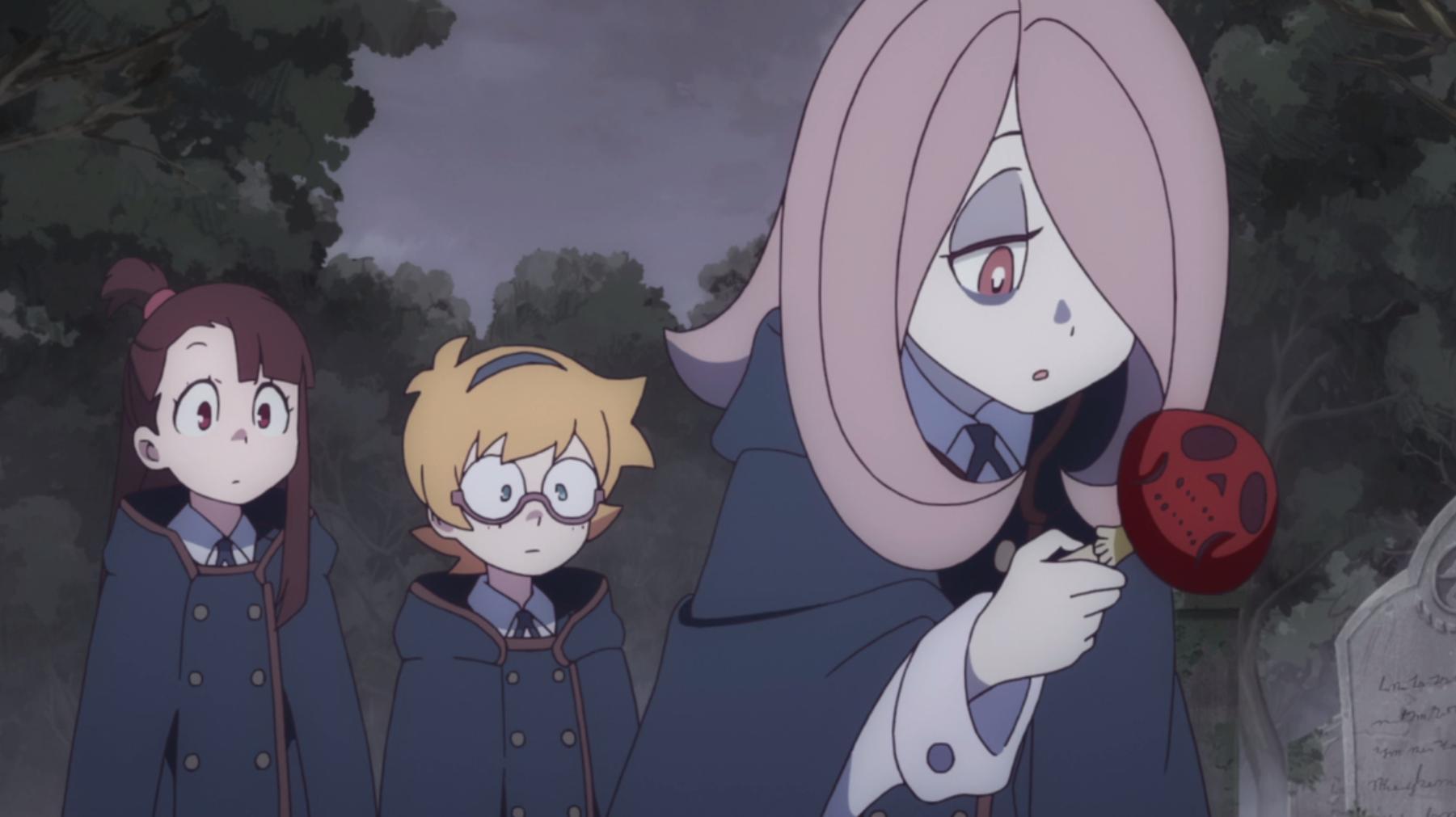
Japanese Sucy is voiced by Michiyo Murase, who is fairly green when it comes to voice acting in anime. She only has 12 casting credits (at the time of writing) on MyAnimeList, the first of which was Sucy herself from the first Little Witch Academia Movie.
English Sucy is played by Rachelle Heger. Believe it or not, Sucy's English voice actress has not played any other anime role, according to MAL. As far as I can tell, this is Heger's first role as a voice actress in anime.
Sucy's casting is further proof that the directors for the English version really did their homework and tried to keep both languages in parallel with one another. Akko and Lotte used voice actresses who had plenty of experience prior to Little Witch Academia. In response, so did their English counterparts. Sucy, meanwhile, was played by a complete newbie in Japanese, which was then ported over to the English version as well.
As far as Sucy goes, there are a few differences in how they're performed. Japanese Sucy speaks more like an old witch - the kind you imagine with warts, stirring a bubbling pot. English Sucy sounds a lot more like an uninterested teen who would rather not associate with her classmates. In both cases, Sucy still has her monotone deadpan persona, from which most of her charm is derived.
Diana
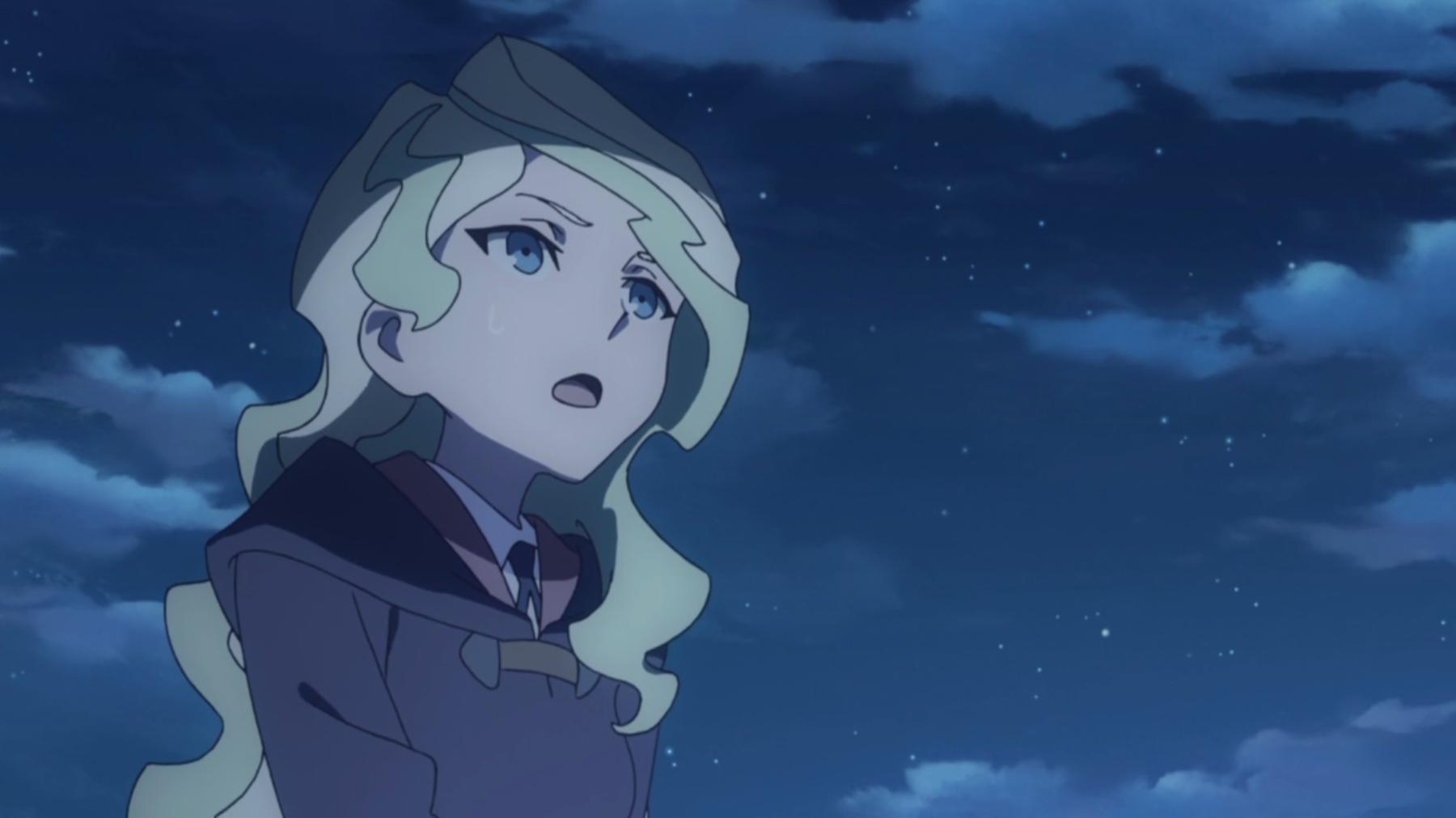
Japanese Diana is played by Yoko Hikasa, who has plenty of experience playing prestigious characters who are known for their high-and-mighty speaking habits, such as Rias Gremory from High School DxD and Emi Yusa from Hataraku Maou-sama!. Her manner of speaking is immediately recognizable as a young woman who was raised both talented and rich.
In English, Diana is voiced by Laura Post, best known for her roles as Nozomi from Love Live! School Idol Project and Ragyu Kiryuin from Kill la Kill. Though their roles have been different, their character in this show is the same. Diana is the most talented at school, but she's far more disappointed in others than she is impressed with herself. This manner of speaking translates rather easily from Japanese to English because most people can quickly identify the difference between self-centered arrogance and disappointment for others.
Now that we've taken a look at some of the main characters, let's investigate some changes that were made over the course of the show itself.
Script Differences
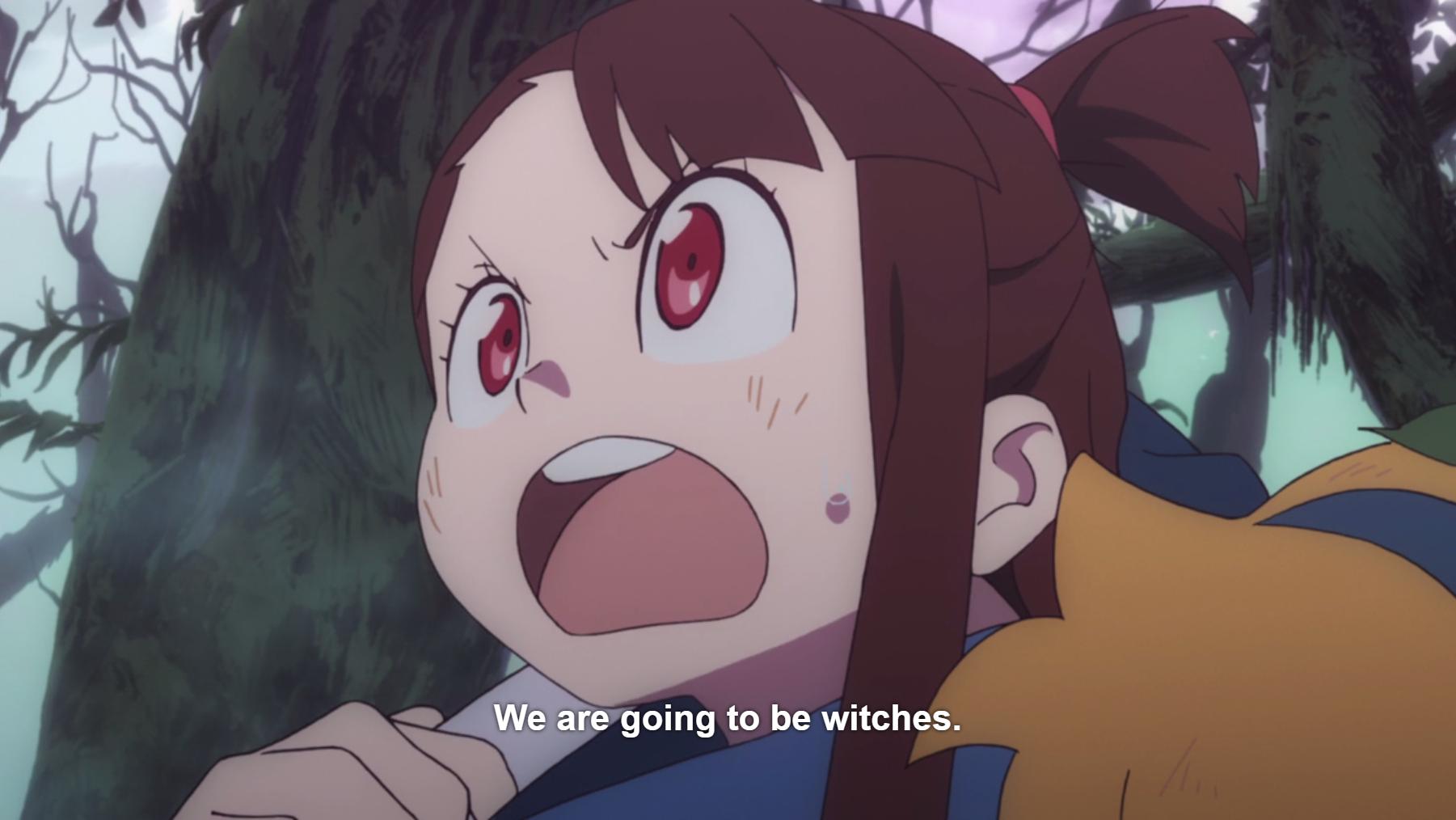
English: My story's about to begin!
This line was re-written to work around the fact that Lotte and Sucy are technically already witches. Speaking singularly also makes more sense for the scene in general, because Japanese went with four sentences that had the pronouns in the order of "We," "I," "We," and "We," while English opted for "We," "We," "I," and "My," in that order. This was likely done so that Akko would become more self-indulgent as her monologue continued.
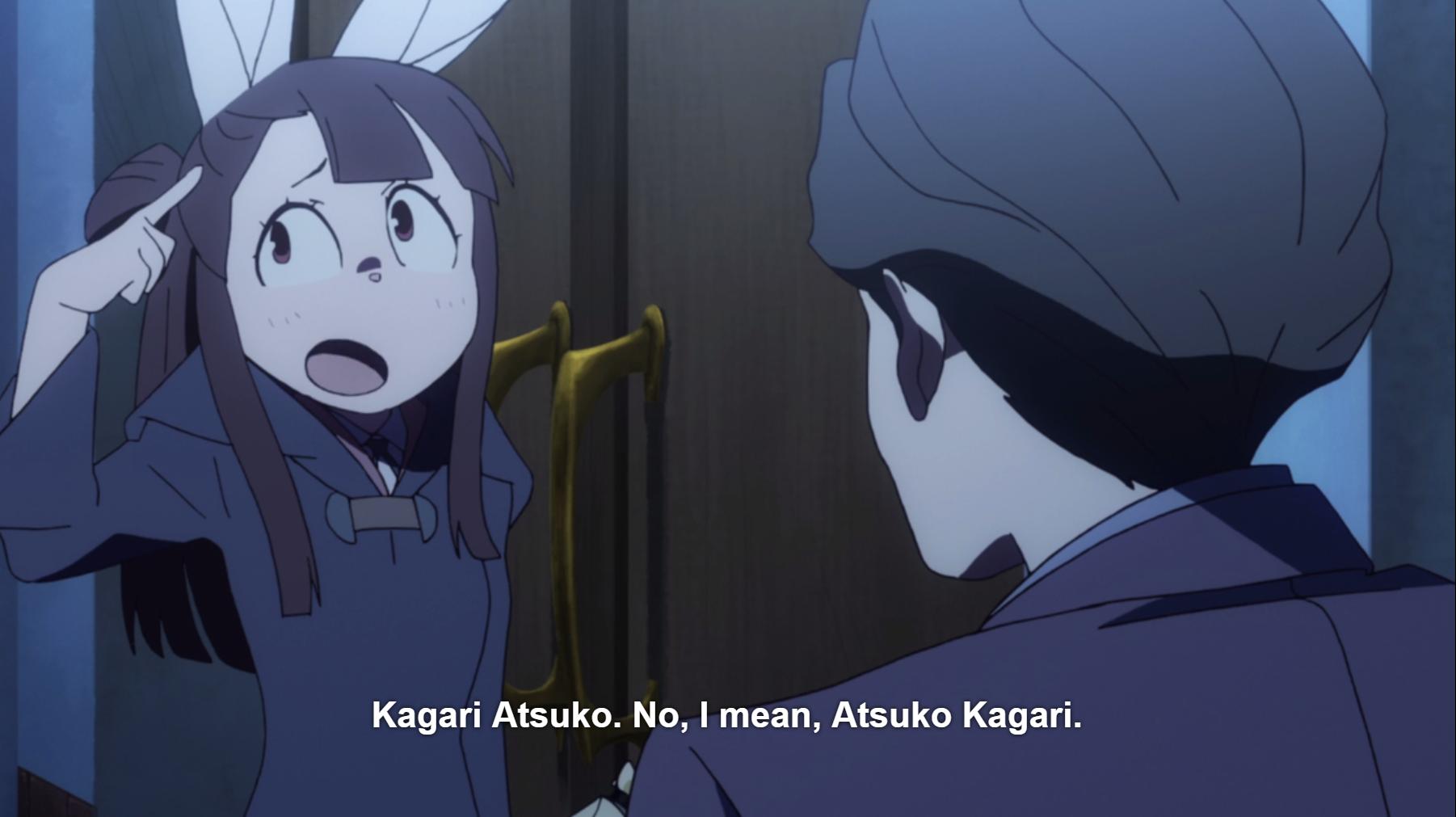
English: "Katsuko Agari. Uh...I mean, Atsuko Kagari."
The original joke is based on the fact that the Japanese introduce themselves with their surname first and given name second, while English-speaking countries introduce themselves with their given name followed by their surname. When Akko introduces herself to Andrew, a British noble, she's unsure which way she's supposed to say her name.
In the English version, the line is re-written so that Akko is speaking to a handsome boy, rather than a British one. This fits in line with her blushing and the fact that she perked up earlier when she heard someone handsome was coming to the school. In this interpretation, she stumbles during her introduction and messes up her name entirely, which is a silly thing to do but otherwise understandable when flustered.
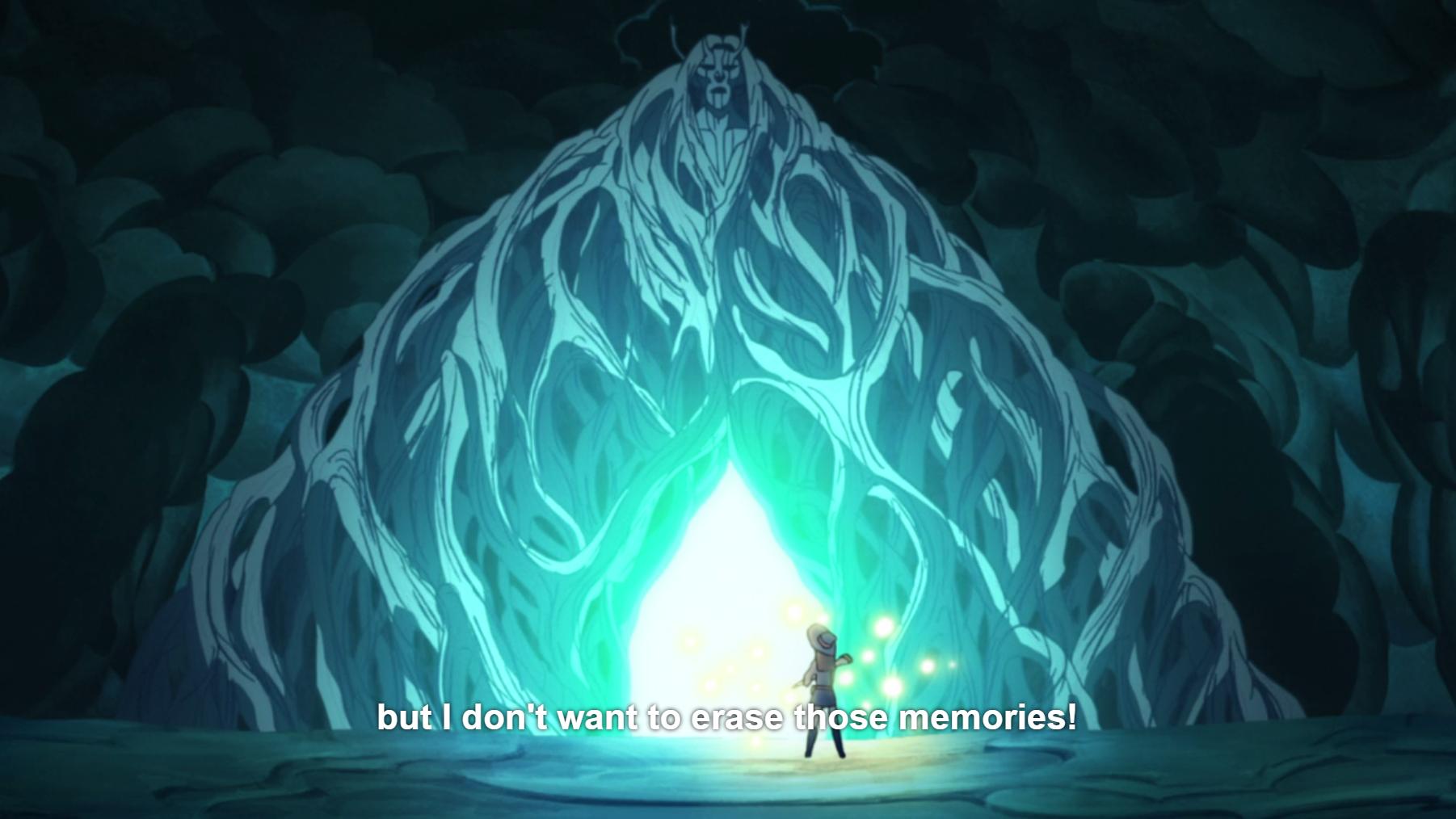
English: "I made a lot of mistakes in the past...but if they're gone, how will I learn from them?"
In Japanese, Akko says that even though nothing has gone right for her in the past, she doesn't want to lose her memories. The English version explores her thought process a little further by having her offer a reason to keep her memories even though some of them are bad.
Odds & Ends
Spells and made-up languages are typically spoken a little differently from how they are transcribed in the official subs. Since the subs themselves are an approximation of non-words that are being recited, there can be some creative liberties in how they're expressed in English. Practically, this meant that the writers would try to keep the spirit of the spells as they're chanted in Japanese, but modified in order to sound more appealing in English, such as swapping R's for L's, or vice versa. Akko's favorite animal transformation spell, Metamorphie Faciesse, was pronounced as Metamōrufīfoshiesu in Japanese. In English, the Japanese pronunciation was used, but modified in order for it to flow more naturally in the English language. These changes were pretty minor and served to provide a more natural English take on what are effectively nonsense words.
Akko refers to her broom in Japanese as Hōki-chan, where Hōki is translated as broom. The English version adapted this nickname by having Akko name it Broomy, in order to keep a cutesy name that made sense to English viewers.
When Lotte meets "GreatBen8103" during the Night Fall book event, she speaks in a British accent, presumably because it fits with her Big Ben costume. We see later that Lotte's pen pal is actually Professor Badcock, who doesn't normally have a British accent. This dialect change was not present in the Japanese version.
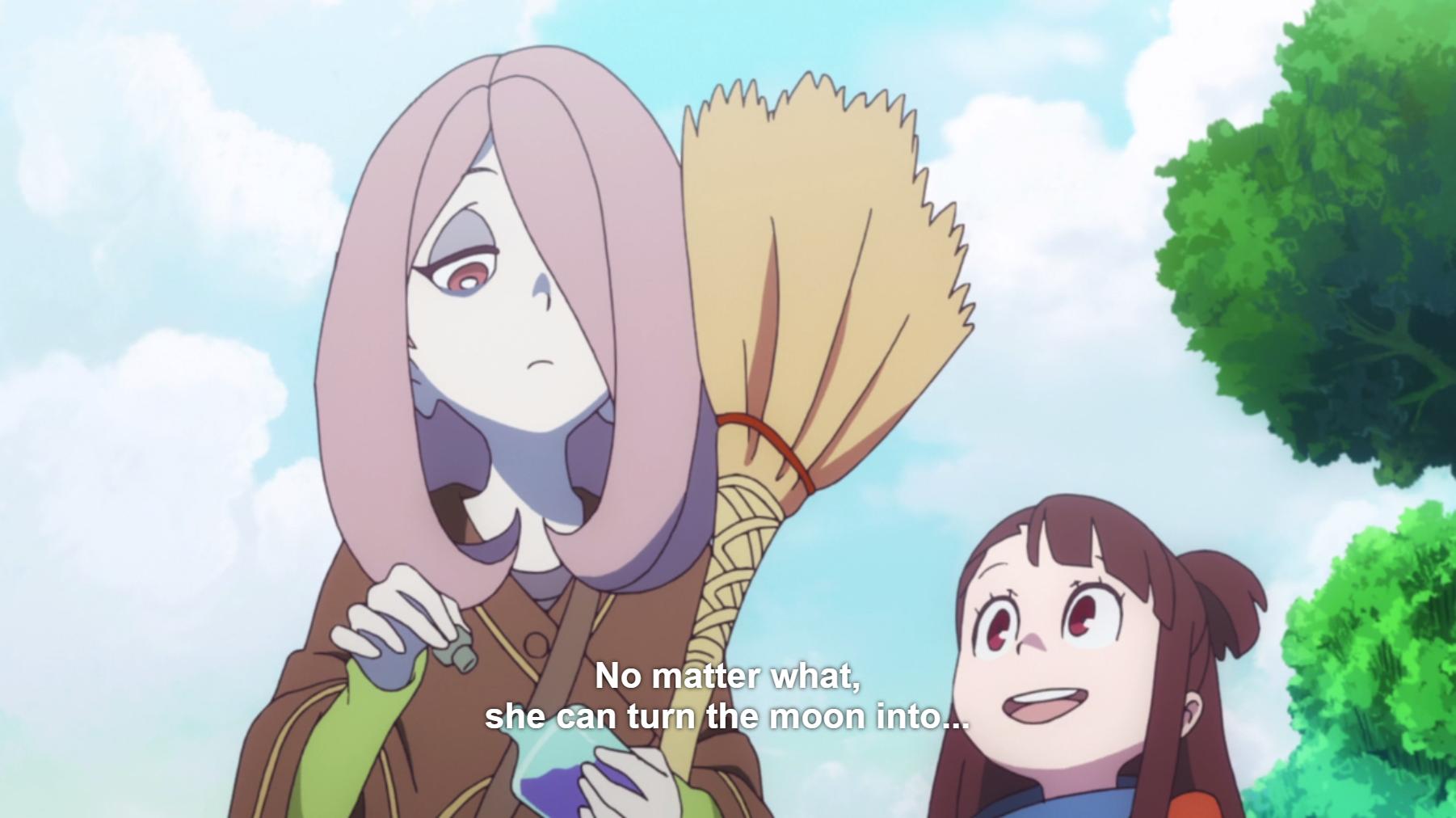
English: "I still think she's cool!"
There are times in Little Witch Academia where Japanese Akko will start to wander with her thought process and get cut short when other characters act on their own. English Akko tends to finish her thoughts with shorter, more broad lines of thinking, as shown in the image above.
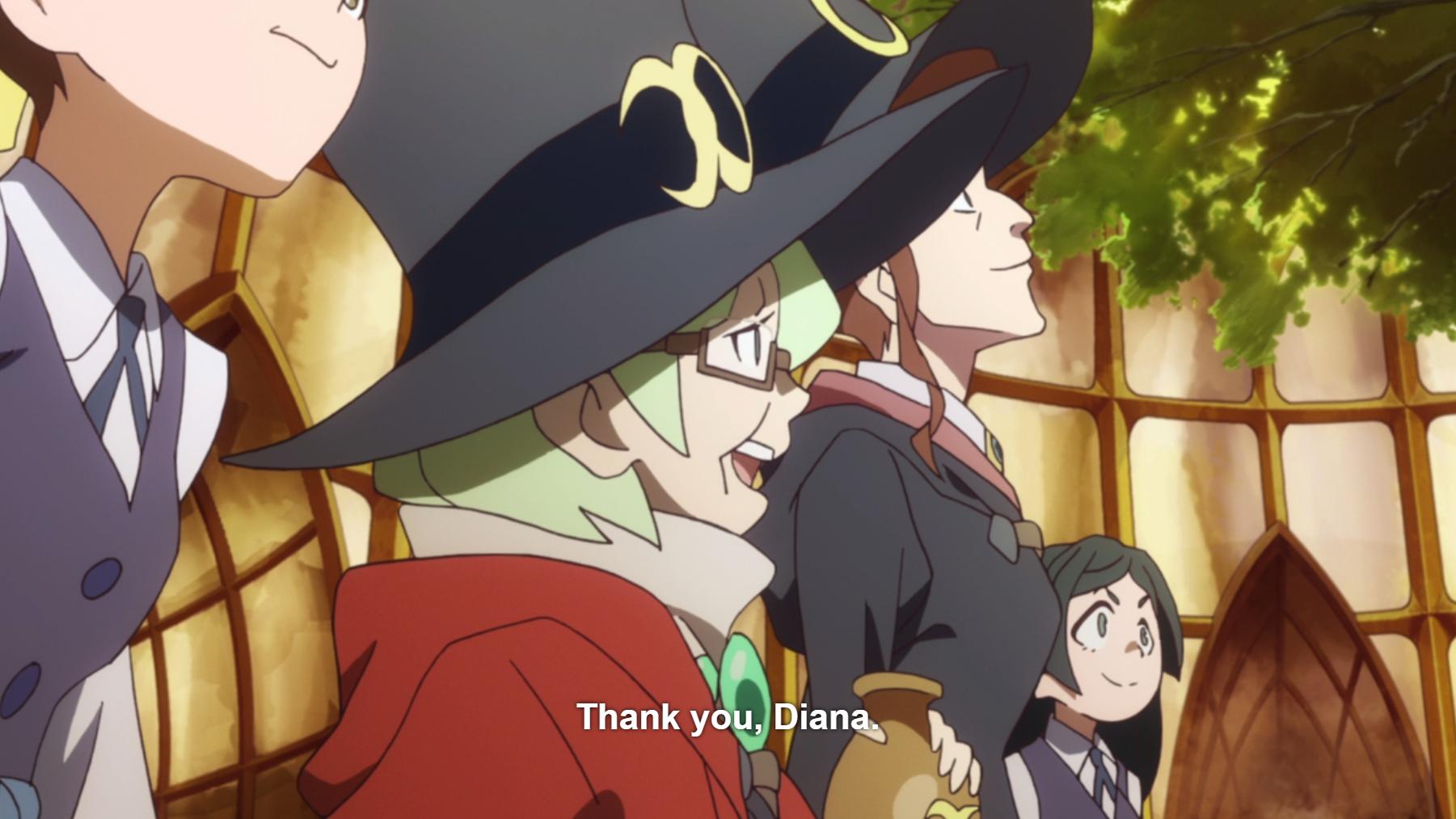
English: "Thank you, Miss Cavendish."
The English version wrote out an instance of Headmistress Holbrooke talking to Diana on a first-name basis, most likely to make Holbrooke sound more like a professional Principal governing over a prestigious boarding school. The change is odd, because Holbrooke goes back to calling Diana by her first name in later episodes.
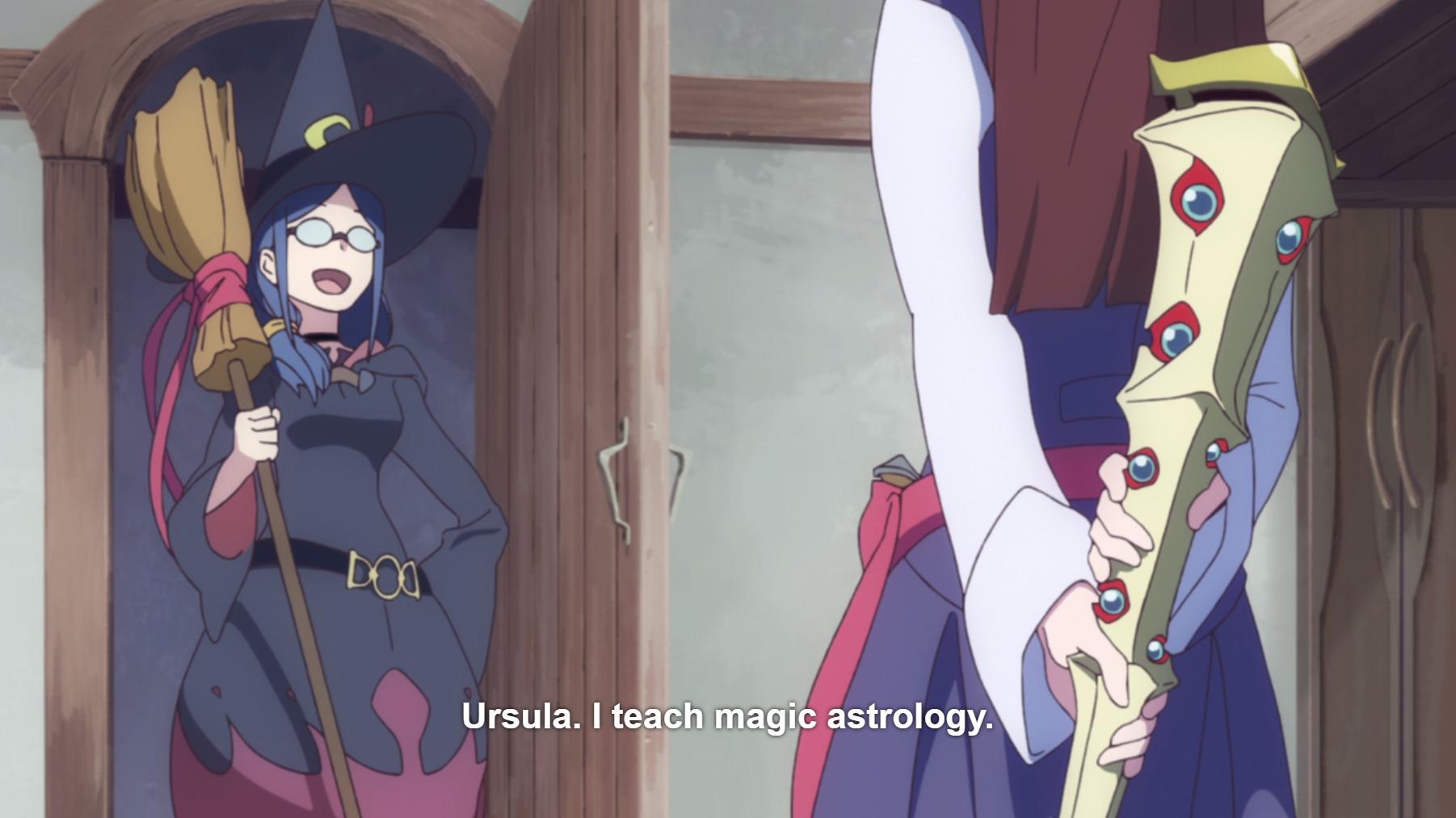
English: "I'm Ursula. I teach astronomy."
In Japanese, Professor Ursula says that she teaches Tenmongaku, which is directly translated to astronomy. Astrology would be spoken as Senseijutsu. Astronomy is the study of the universe's objects and phenomena outside of Earth's reach, while astrology is a pseudoscience that attempts to study how the positions of these objects affect a person's personality. In this case, the English dub corrected the subs' mistake.
What both versions fail to do is remain consistent with what exactly is being taught. In English, Professor Ursula refers to the class as magical astrology a few episodes later, which is truthfully the more appropriate class for a witch curriculum. In Japanese, she says the astronomy test is up next, but then praises Diana for her astrological readings. While Akko is studying, there's also a reference to a former student who excelled in astrology and is now a professional fortune-teller. In the case of the fortune-teller, the Japanese language said she excelled in Senseijutsu. In both languages, it seems that astronomy and astrology are lumped together in the same course. The difference is that in English, Ursula is content with calling herself the teacher of either interchangeably, while in Japanese she consistently identifies as the astronomy teacher. Perhaps there's a reason why Japanese Ursula would rather identify with the study of objects in space, rather than fortune-telling?
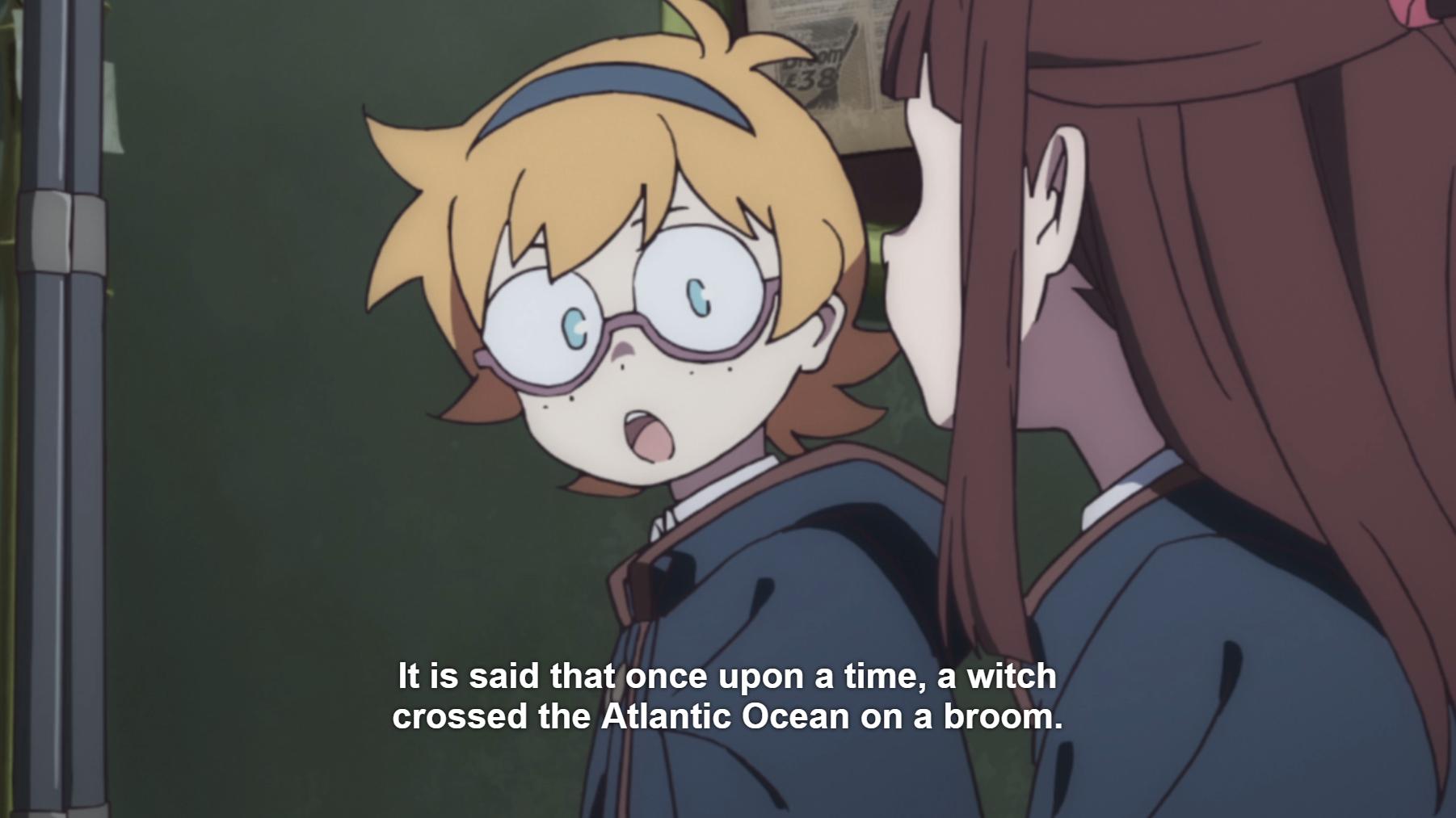
English: "Long ago, there was once a witch who crossed the Pacific Ocean riding on a broom."
Lotte says Taiseiyō, which is directly translated as the Atlantic Ocean. The Pacific Ocean is spoken as Taiheiyō. It is unknown why the body of water was changed for the English version.
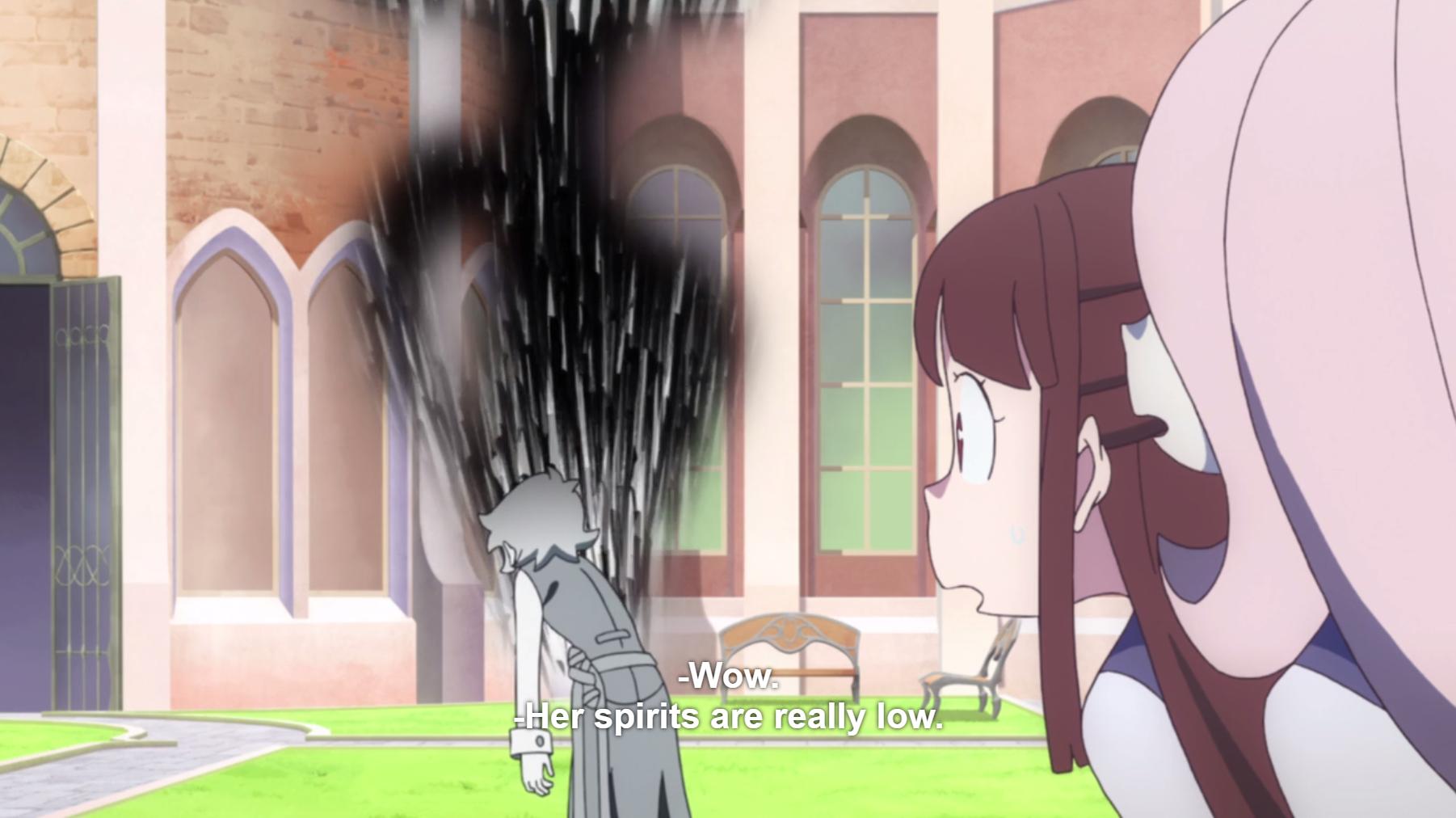
English: "Going by those weird lines, she must be pretty upset."
Sucy breaks the fourth wall a bit in English here, a humorous addition that was not present in the Japanese version.
Addendum
This marks the end of my analysis between the Japanese and English languages of Little Witch Academia. If nothing else, the main takeaway I want you to have from reading this article is that anime in different languages are merely different, and not necessarily better or worse. It's best to understand that anime as a medium can be appreciated in multiple languages, and the languages themselves can make an anime different, and by extension, interesting.
Please note: I am not fluent in Japanese, nor do I try to imply that I can read it. My knowledge of the language only reaches as far as what I've picked up while watching anime. If you see anything that is factually incorrect in my article or noticed anything that I couldn't explain myself, please don't hesitate to send me a message and correct me.
If you enjoyed this piece and would like to see it continue, or if you have a suggestion for which show should be tackled next for this series, please don't hesitate to send a message. Thanks so much for reading.
Got feedback? Leave a comment here!
